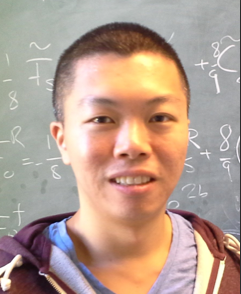讲座题目:Scattering amplitude from quantum computing with reduction formula
讲座嘉宾:Wai Kin Lai,华南师范大学访问研究员
讲座时间:2024年11月20日 10:00
讲座地点:吉林大学中心校区物理楼333会议室
嘉宾简介

Wai Kin Lai received PhD in physics at the University of Pittsburgh in 2016. He was a postdoctoral reseacher at the Technical University of Munich from 2016 to 2020. Starting from fall 2020, he has been working as postdoctoral researcher at South China Normal University, and was a visiting assistant researcher at the University of California, Los Angeles from 2022 to 2023. Wai Kin Lai's research interests are applications of effective field theories of QCD to particle phenomenology and studies of nonperturbative physics with quantum computation.
讲座摘要
In this talk, I will present a new general framework for computing scattering amplitudes in quantum field theory with quantum computers in a fully nonperturbative way. After giving a motivation for the application of quantum computing to particle physics, I will briefly introduce the basics of quantum computing. After that, I will give the details of the proposed quantum algorithm for calculating scattering amplitudes, which utilizes the Lehmann-Symanzik-Zimmermann (LSZ) reduction formula.
In this framework, one only has to construct one-particle states of zero momentum, and no wave packets of incoming particles are needed. The framework is able to incorporate scatterings of bound states, and is ideal for scatterings involving a small number of particles. This framework is expected to have particular advantages when applied to exclusive hadron scatterings. As a proof of concept, by simulations on classical hardware, I demonstrate that in the one-flavor Gross-Neveu model, the fermion propagator, the connected fermion four-point function, and the propagator of a fermion-antifermion bound state obtained from our proposed quantum algorithm have the desired pole structure crucial to the implementation of the LSZ reduction formula.
主办单位:吉林大学物理学院
吉林大学理论物理中心